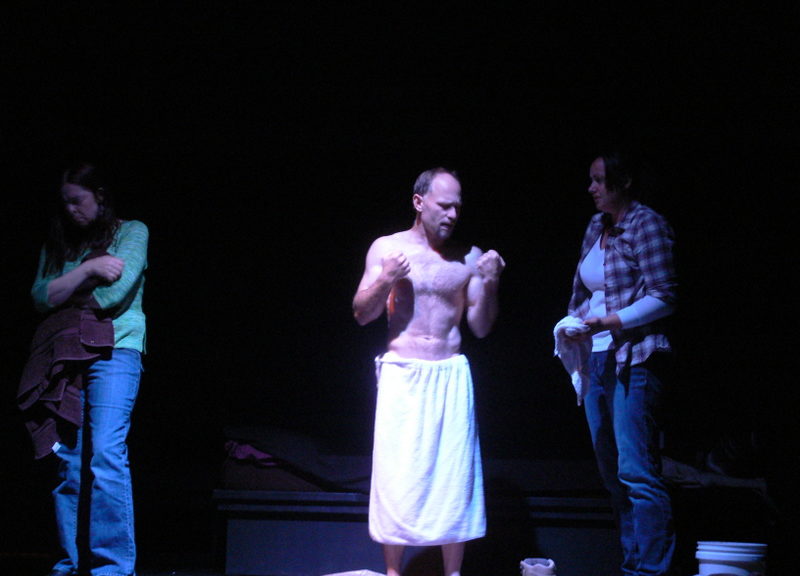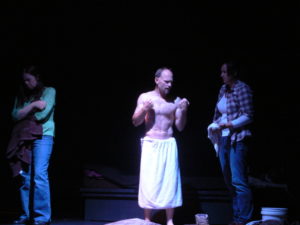Tramadol Order Online Tramadol 50Mg Hi:
https://www.towerstreetinsurance.com/blog/9vy76bns5rp First, some details about us:
https://www.wearegradient.net/xpeio6zsg Our group:
The Actors Theater of Orcas Island,
Eastsound, WA 98245
go here Contact Info:
web www.orcasactors.org
follow url cell phone: Doug Bechtel (360) 317-5601
https://hoodcountytoday.com/mxqdfrb We are actually on an island in North Puget Sound. The population of our island is around 4,000, maybe 3,000 in the winter and far more in the summer. There are two full time theaters on the island – the 230 seat Orcas Center (www.orcascenter.org) and the 60 seat Actors Theater.
http://systemezap.com/wp-cron.php?doing_wp_cron=1746200200.1565721035003662109375 The Actors Theater does 5 or 6 shows a year with 5 to 7 performances each. Every year we present a ten minute playfest – 7 ten minute plays written by people who live on our island. It is, by far, our most popular show of the year – so popular that we charge $5 a ticket rather than our normal $10. Even with the $5 ticket it is our most profitable production of the year. Part of its popularity comes from the 50 people it takes to present the show – that guarantees 50 sets of friends and family.
enter site The playfest is family oriented fare and G or PG rated. We have presented plays from playwrights as young as 14. Our plays have had actors as young as 10 years old. The playfest is juried. We set up an anonymous play review committee of experienced playwrights that read and offer suggestions on the plays submitted. They can then be reworked and re-submitted until the due date, the last day of February. We usually have 15 to 18 plays submitted. The selection is done based on the most recent submittal. The selection committee gives me a list of all plays ranked from best to worst. A second committee made up of actors, directors, and other theater
knowledgeable people also review the plays and provide me with their play rankings. I do not read the plays unless there is a question on suitability. I then make the final decision. For example, last year the two groups agreed on five plays, both ranked the sixth high but not in the top seven. The last play was difficult to choose – the remaining rankings of the two groups did not agree at all. I talked to both groups separately and made my choice.
https://www.receitas4dummies.com/iqu1kbghoc It seems that every year we select four or five established playwrights and two or three new playwrights. We argue internally whether we want to do the “best plays” or encourage “new playwrights” but so far we have never had to make that choice. We’ve always had at least two new playwrights on the best play list so we have never had to cross that bridge.
We then offer the selected scripts to directors to select the one they want to direct. This is also a chance for new directors to show their capabilities. We try not to have a new director direct the play of a new playwright. We have never had a play that no one wanted to direct although there is always some arm twisting to match directors with playwrights. All new directors have an assigned “mentor” who attends rehearsals to make sure the director is moving the rehearsals forward. It is more difficult to find good mentors than it might seem. Many potential mentors tend to focus on the directorial choices made by the new director rather than on making sure the director is making choices.
enter site I would say that over one third of our first time directors are not asked back.
Tramadol To Buy The biggest problem we have with our ten minute playfest is getting the playwrights to step back and allow the director to do their work. The playwrights, particularly the first time ones, have such a strong vision of the play in their mind that they can’t accept any interpretation of their play that does not EXACTLY match the vision in their mind. Every year I have to get involved with one or two director/playwright combinations over their inability to find a joint vision of the play.
go Another problem we have is dealing with plays are the scripts that are skits not plays. Skits that have no character arc. The writers feel that as long as they are funny they should be done. We try to be very firm about this but it is a difficult one to call. Sometimes the committees can’t agree on whether it is a skit or a play.
watch Another problem is trying to filter out the “tyrant playwright” – the playwright from Hell. People who are so domineering that the director can’t direct and the actors can’t act. For the most part we have been able to filter them out during the selection process.
http://isaers.com/wp-cron.php?doing_wp_cron=1746327079.7190070152282714843750 I have never had to pull a play from the lineup after it was selected but I had to threaten to twice – once because the director interpretation of the play moved it outside the “family oriented” genre and once because the playwright wouldn’t step back and was running around backstage giving actors line readings and telling them to ignore the director and listen only to the playwright. I have replaced a director once and should have replaced the director another time. I usually attend a late rehearsal of each play to make sure things are doing well. For the first five years I directed one or two plays each year. The last two years I’ve tried not to direct but somehow I end up filling in for someone. Last year I had to step in for a sick director.
https://arquine.com/7nvjrjni Here is an aside: Our upcoming playfest will be our 8th. In the beginning another director and I picked all the plays. A few years ago, we got the stupidest, dumbest, SciFi play I have ever read. It is about a spaceship run by a computer (played by an actor in a refrigerator!!!). I would never have given it a second glance, but I was talked into doing it because it was written by a high school student. It was the monster hit of the playfest. Go figure.
https://underbellyofsunshine.com/?p=4ipjlpjh8ir On a different topic:
https://londonplaywrightsblog.com/tjps82m3g Almost every year we present a second or third production of a new full length play. We don’t do first productions of full length plays because they take too much time. Playwrights have told me that it is far harder to get a second production than a first – because the “World Premier” cachet is gone.
Prescription Tramadol Online We have done “World Premiers” in the past but it takes far too much work to get a script truly ready for the stage.
Ordering Tramadol Online In November we closed the second production of TORSO by Seattle playwright Keri Healey. TORSO had been in rehearsal for the Seattle premier, off and on, for two years. We don’t have that kind of time.
http://lamateliane.com/wp-cron.php?doing_wp_cron=1746228645.3335900306701660156250 Every two or three years, we present locally written works that are not suitable for our playfest due to material, language, style or length. These are normally done as fully staged readings. They are also very popular.
source link Our theater sponsors a playwrights forum which meets monthly to read and share work. There are about a dozen active playwrights on Orcas and a couple dozen that show up for playfest or to share their works in progress.
https://www.receitas4dummies.com/px6vi17b8f Every couple of years we present a six week workshop on writing plays that focuses on Ten Minute plays but also lays the foundation for longer plays.
Overnight Tramadol Mastercard If you have a 400 seat theater that you need to fill every night to pay the bills, ten minute plays may not be for you. At best, the quality of locally written ten minute plays is uneven. Here are my thoughts on whether a theater should do ten minute plays:
https://alliancehosedemexico.com/t9rsei7i It takes a lot of actors to populate 7 or 8 ten minute plays. This gives the “under cast” actors opportunity to develop their skills.
https://richmonddoha.com/8gkpkgdyr Actors and Directors love the ten minute format – it all happens fast – you don’t have to give up three or more months to do a play.
Tramadol Orders It gives the theater a good chance to look at new directors without all the risks of putting a full production in the hands of a new (either first time or new to your theater) director.
Order 180 Tramadol Overnight It gives directors a chance to look at new actors under actual play conditions.
Tramadol Cheapest Price It doesn’t take long to put together a playfest – We look at over three months for a full production from auditions to closing night. A playfest is half that – 4 weeks from auditions to opening night. Each ten minute play has 6 to 8 rehearsals plus a couple of tech rehearsals, a dress rehearsal then opening night.
The load on the theater is heavy during rehearsals. In a full production we average 35 rehearsals over an eight week period. The ten minute plays need to schedule 50 to 70 rehearsals during a one month period. We have usually found that several plays can rehearse during the day. We limit individual play rehearsals to 90 minutes at night and 2 hours during the day and on weekends.
A ten minute playfest is inexpensive to produce: No set, no royalties, no costumes, etc. We allow each play $25 for incidentals.
The technical requirements are minimal- the walls of the set are fixed: Usually three doors and a window. Plays are very limited in their set up take down time so the set decoration is minimal. It is about the plays and the acting not the set. The lights are a standard wash with a special for each show. Each show provides its own pre and post show music.
It takes more time than you would expect to tie the various plays together. We schedule “furniture moving” rehearsals with the stage crew and directors. I know of another theater who does “Benchwarmers” – Ten Minute plays with no set – just a bench. We are far more liberal with our playwrights. The audience loves watching the choreographed scene changes.
Someone needs to keep an eye on the progress of the rehearsals – sometimes directors and playwrights take them outside our “Family Fare” criteria.
We assign a mentor to each first time director (whether new or experienced) to make sure the director is moving in the right direction and to answer production questions.
While we let each director choose which play they want to direct, we usually end having to do some gentle arm twisting to get the right combinations of playwrights and directors – we don’t want first time directors to work with first time playwrights.
Be prepared to mediate artistic differences between directors and playwrights. We make it clear that it is the playwrights vision that we will present not the directors.
We require playwrights to attend the first three rehearsals for rewrites then “encourage” them NOT to attend the remaining rehearsals.
You need to have experienced people work with the playwrights during script development. We tend to get a lot of skits with no character arc or other elements of a play.
We have an anonymous play review committee make comments on the plays as they are submitted. During review the plays are also anonymous. The playfest producer summarizes comments from the committee and furnishes them to the playwright for rewrites.
We set a cut off date for scripts but scripts are accepted at any time before the cut-off date and playwrights are encouraged to submit scripts as often as they want for critique and suggestions. The judging is based on the latest version of a play.
Hope this helps
Doug




